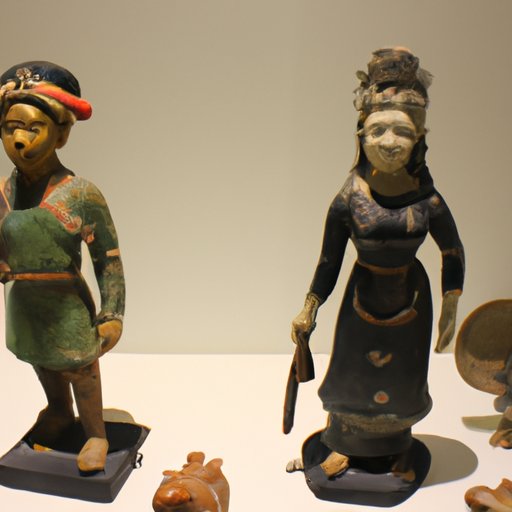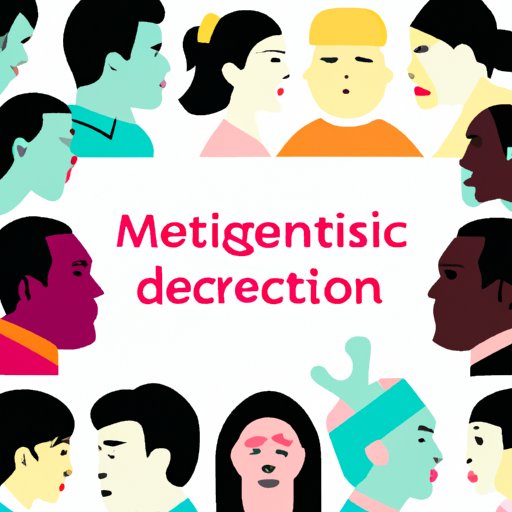Introduction
Cultural stereotypes are oversimplified ideas or beliefs about a particular culture, race, ethnicity, religion, or nationality. These beliefs are often based on assumptions and can lead to prejudice and discrimination. This article will explore the historical perspective on cultural stereotypes, the role of media in shaping them, and their impact on intercultural interactions.

Historical Perspective on Cultural Stereotypes
Cultural stereotypes have been around for centuries, although they have evolved over time. In the past, these stereotypes were often based on religious or political differences. For example, during the Crusades, Christians were believed to be superior to Muslims, and during the Cold War, Westerners were seen as more advanced than people from the Eastern Bloc.
Today, cultural stereotypes are still based on these same religious and political differences, but they also include gender, age, education, lifestyle, and other factors. Common stereotypes include the idea that Asians are good at math, African Americans are good at sports, and women are better at multitasking than men.
The Role of Media in Shaping Cultural Stereotypes
Media plays an important role in shaping cultural stereotypes. Television shows, movies, and social media all have an influence on how we view different cultures. Television shows often portray certain ethnic groups in a negative light, while movies often depict certain nationalities as being exotic or dangerous. Social media is also responsible for spreading false information and perpetuating stereotypes.
The media portrayal of a particular culture can have a significant impact on how that culture is perceived. For example, if a television show portrays a certain group as lazy or unintelligent, viewers may come to believe that all members of that group are like that. This can lead to prejudice and discrimination against that group.

Exploring the Impact of Cultural Stereotypes
The impact of cultural stereotypes can be far-reaching. They can affect intercultural communication and relationships by creating a barrier between people of different backgrounds. They can also have a negative effect on self-image and mental health, as individuals may internalize the stereotypes and feel inadequate or ashamed of their own culture.
Cultural stereotypes can also limit understanding and acceptance of other cultures. People may be unwilling to learn about or interact with members of a different culture because of preconceived notions or beliefs. This can lead to a lack of respect and appreciation for other cultures, which can ultimately lead to prejudice and discrimination.

Examining How Cultural Stereotypes Affect Intercultural Interactions
Cultural stereotypes can have a damaging effect on intercultural interactions. They can lead to misunderstandings and miscommunication, as people may assume that everyone from a certain background is the same. They can also lead to conflict, as people may become defensive when faced with a stereotype about their own culture. And finally, they can lead to feelings of alienation, as people may feel excluded or unwelcome due to their cultural background.
There are several strategies that can be used to overcome cultural stereotypes. One is to challenge stereotypes whenever possible. This can be done by educating others about the nuances of a particular culture and encouraging open dialogue about cultural differences. Another strategy is to practice empathy and understanding. By taking the time to get to know someone from a different culture, it is possible to gain a deeper understanding of their experiences and perspectives.
Analyzing the Causes and Effects of Cultural Stereotypes
The causes of cultural stereotypes are complex and varied. The nature vs. nurture debate is often used to explain why certain stereotypes exist. Some argue that these stereotypes are rooted in biological or genetic differences, while others suggest that they are learned behaviors. Regardless of the cause, it is clear that stereotypes can lead to prejudice and discrimination.
The effects of cultural stereotypes can be seen in many aspects of life. They can lead to misunderstandings and conflicts between individuals and groups, as well as feelings of exclusion and marginalization. They can also lead to unequal treatment in the workplace, education system, and society at large.
Conclusion
In conclusion, cultural stereotypes are oversimplified ideas or beliefs about a particular culture, race, ethnicity, religion, or nationality. These beliefs are often based on assumptions and can lead to prejudice and discrimination. The media plays an important role in shaping cultural stereotypes, and their impact can be seen in intercultural communication, relationships, and mental health. Understanding the causes and effects of cultural stereotypes is key to overcoming them and promoting understanding and acceptance among different cultures.
(Note: Is this article not meeting your expectations? Do you have knowledge or insights to share? Unlock new opportunities and expand your reach by joining our authors team. Click Registration to join us and share your expertise with our readers.)
